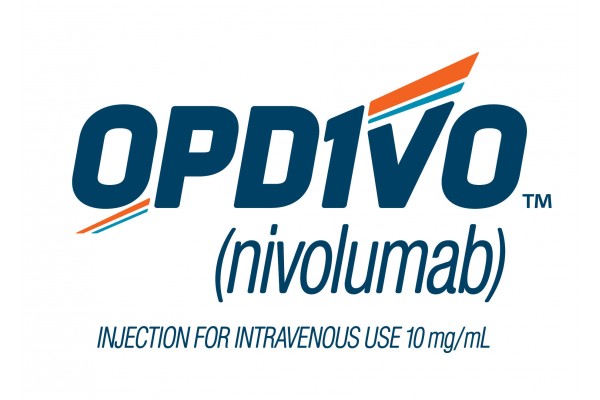U.S. Food and Drug Administration (FDA) Accepts Bristol-Myers Squibb’s Application for Opdivo (nivolumab) Plus Yervoy (ipilimumab) in Intermediate- and Poor-Risk Patients with Advanced Renal Cell Carcinoma and Grants Priority Review
March 29, 2018
Source: drugdu
 896
896

Bristol-Myers Squibb Company (BMY) announced that the U.S. Food and Drug Administration (FDA) has accepted its supplemental Biologics License Application (sBLA) for priority review of Opdivo (nivolumab) plus Yervoy (ipilimumab) to treat intermediate- and poor-risk patients with advanced renal cell carcinoma (RCC). The FDA also previously granted Breakthrough Therapy Designation for this application, which is the 2nd indication for which the Opdivo plus Yervoy combination has received this designation.
“At BMS, we hope to provide treatment options to patients with advanced forms of renal cell carcinoma,” said Murdo Gordon, executive vice president and chief commercial officer, Bristol-Myers Squibb. “Breakthrough therapy designation and today’s filing acceptance for the Opdivo plus Yervoy combination are an important step in our ongoing efforts to advance therapies to address a high unmet need in first-line treatment of kidney cancer in intermediate- and poor-risk patients.”
The application is based on data from the phase 3 CheckMate -214 study, which was stopped early based on the recommendation of an independent Data Monitoring Committee following a planned interim analysis of overall survival. The results of the study were recently presented at the European Society for Medical Oncology (ESMO) 2017 Congress.
The Breakthrough Therapy Designation is an FDA program intended to expedite the development and review of medicines with signals of potential clinical benefit in serious diseases to help ensure patients have access to new therapies as soon as possible.
The application has an action date of April 16, 2018.
About CheckMate -214
CheckMate -214 is a phase 3, randomized, open-label study evaluating the combination of Opdivo plus Yervoy versus sunitinib in patients with previously untreated advanced or metastatic renal cell carcinoma. Patients in the combination group received Opdivo 3 mg/kg plus Yervoy 1 mg/kg every 3 weeks for 4 doses followed by Opdivo 3 mg/kg every 2 weeks. Patients in the comparator group received sunitinib 50 mg once daily for 4 weeks, followed by 2 weeks off before continuation of treatment. Patients were treated until progression or unacceptable toxic effects. The primary endpoints of the trial are overall survival, progression-free survival and objective response rate in an intermediate to poor-risk patient population (approximately 75% of patients). Safety is a secondary endpoint. The study met the co-primary endpoints of improved overall survival and objective response rate compared to sunitinib in intermediate- and poor-risk patients. While the combination demonstrated an improvement in progression-free survival relative to sunitinib, another co-primary endpoint, it did not reach statistical significance.
Adverse events (AEs) leading to discontinuation were reported in 22% of patients (547) in the combination group, compared with 12% of patients in the sunitinib group (535). The most common grade 3/4 AEs in the combination group were fatigue (4%), diarrhea (4%), rash (2%), nausea (2%), and, in less than 1% each, pruritus, hypothyroidism, vomiting and hypertension. In the sunitinib group, the most common grade 3/4 AEs were hypertension (16%), fatigue (9%), Palmar-plantar erythrodysaesthesia syndrome (9%), stomatitis (3%), mucosal inflammation (3%), vomiting (2%), nausea (1%), decreased appetite (1%), hypothyroidism (<1%) and dysgeusia (<1%). There were seven treatment-related deaths in the combination group and four in the sunitinib group.
About Renal Cell Carcinoma
Renal cell carcinoma (RCC) is the most common type of kidney cancer in adults, accounting for more than 100,000 deaths worldwide each year. Clear-cell RCC is the most prevalent type of RCC and constitutes 80% to 90% of all patients. RCC is approximately twice as common in men as in women, with the highest rates of the disease in North America and Europe. Globally, the five-year survival rate for those diagnosed with metastatic, or advanced, kidney cancer is 12.1%.
Bristol-Myers Squibb & Immuno-Oncology: Advancing Oncology Research
At Bristol-Myers Squibb, patients are at the center of everything we do. Our vision for the future of cancer care is focused on researching and developing transformational Immuno-Oncology (I-O) medicines for hard-to-treat cancers that could potentially improve outcomes for these patients.
Read more on
- AZ’s Farxiga Gets FDA Priority Review For Heart Failure January 8, 2020
- Global Recall of CyPass Micro-Stent by Alcon September 3, 2018
- Breakthrough Device Designation Granted to Digital Intervention for Alzheimer’s August 27, 2018
- FDA Approved Eye Drop Oxervate to Treat Neurotrophic Keratitis August 27, 2018
- Experimental Ebola Treatments Approved by Congo as it Sees Flare-Up in Cases August 24, 2018
your submission has already been received.
OK
Subscribe
Please enter a valid Email address!
Submit
The most relevant industry news & insight will be sent to you every two weeks.



